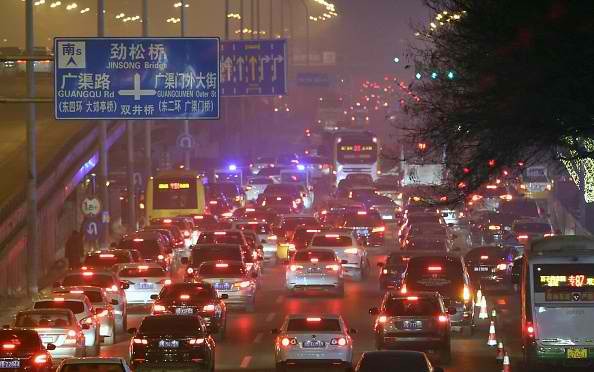China's meteorological bureau raised an orange alert in Beijing and surrounding areas because of heavy smog and lack of visibility. The expressways were closed and 46 flights were cancelled.
Portions of the expressway in Beijing that linked the capital with Harbin in the northeast, Shanghai in the east, and neighbouring Tianjin Municipality, were also closed.
In Shandong, 155 flights from Jinan were rerouted or cancelled.
The Beijing Municipal Environmental Monitoring Center reported that the density of PM 2.5, or particulate matter associated with hazardous smog, stood at 391 micrograms per cubic meter at noon in the city proper.
The number has decreased from above 500 micrograms per cubic meter over the weekend which triggered a red alert.
A meteorologist with Beijing Meteorological Station, Zhang Lin'na, said that a weak cold spell will bring rain or snow to the Beijing-Tianjin-Hebei region in the coming weekend. This will not, however, disperse the pollution.
An expected strong cold front is to sweep the smog this coming Monday night.
Photos of China's white bullet trains with brown stains circulated in social media. Official media websites showed these photos as thick smog covered Beijing and 71 cities for the past five days.
Ma Jun, a director at the Institute of Public and Environmental Affairs in Beijing, said that the grime was likely to have been caused by smog.
The National Meteorological Center (NMC) reported that heavy smog will persist in parts of Beijing, Tianjin, Hebei, Henan, Shandong, Shanxi, Shaanxi, Anhui, Jiangsu, Hubei, Jiangxi and Hunan until tomorrow.
The central government has stepped up efforts to cut outdated production capacity and has dispatched inspection teams to provincial regions to supervise environmental measures at key industrial enterprises.



























